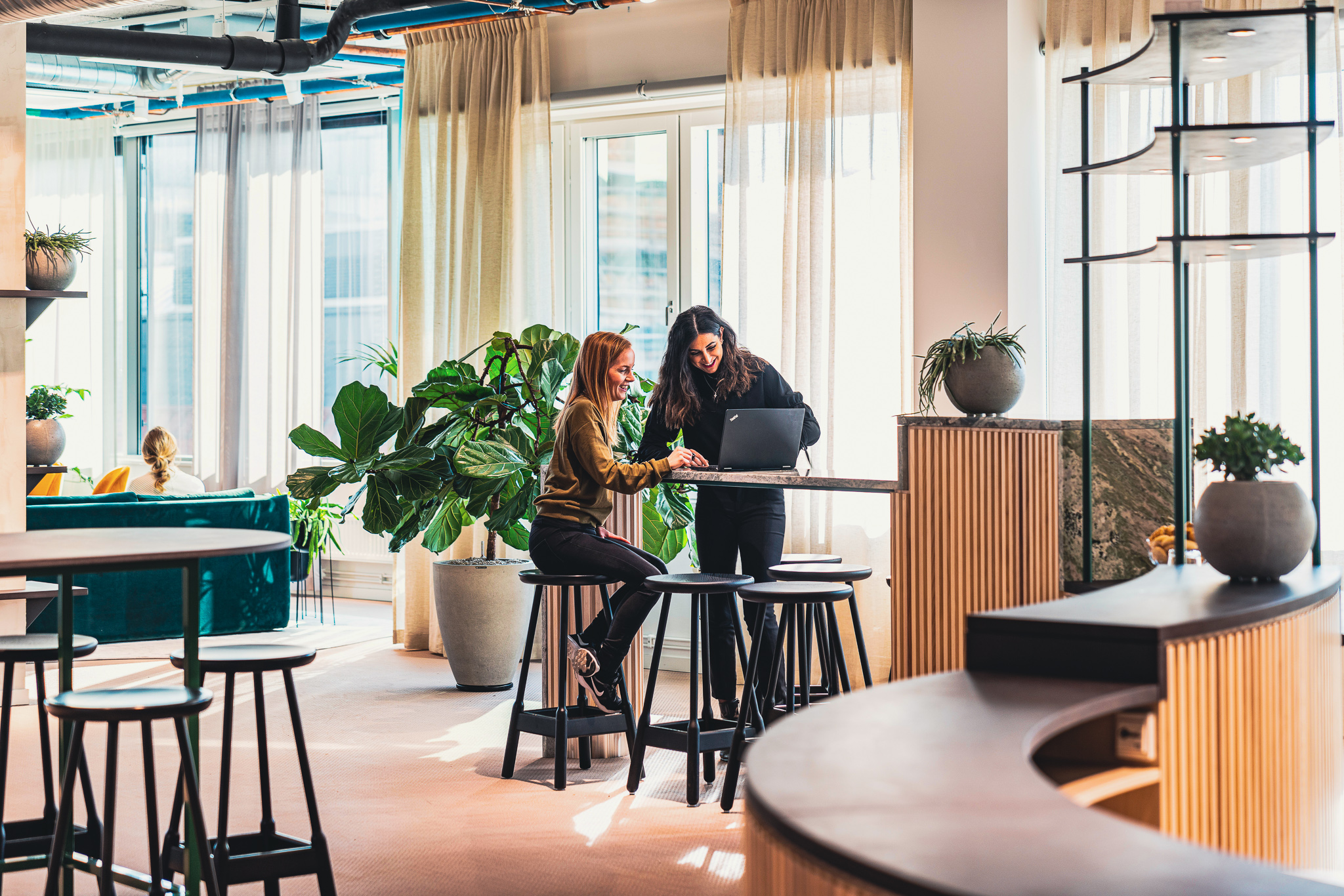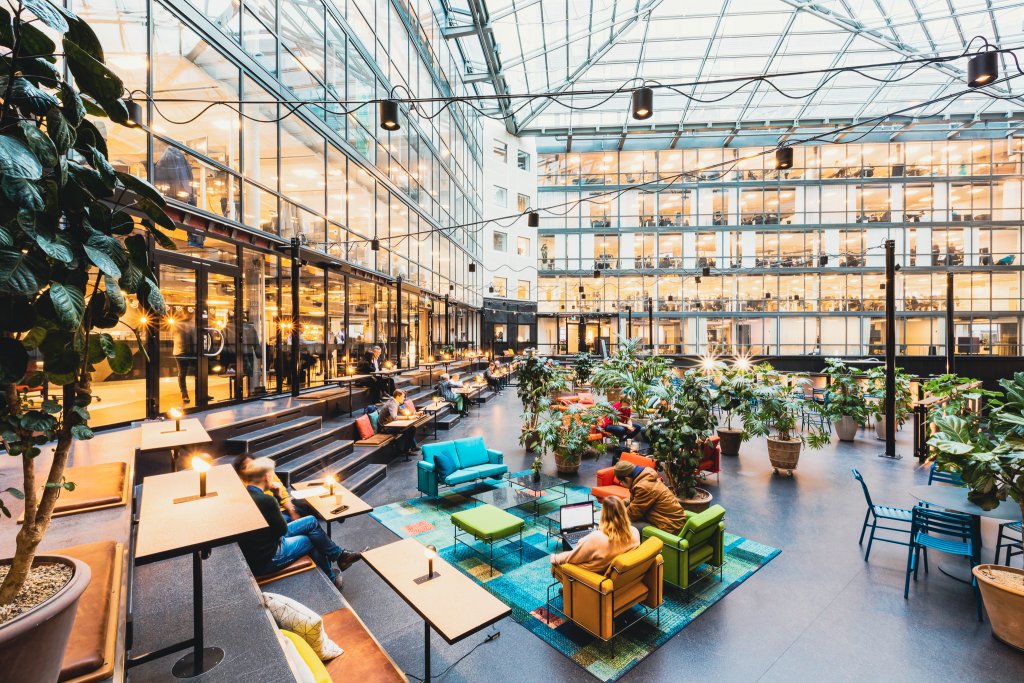Please contact you local service desk for reseting your credentials. //Epicenter team

Over the past ten years a lot has happened to how we view the workspace as a result of multiple factors, such as the tech race, the pandemic and digitisation. What these factors have in common is that they have contributed to shifting what your most important resources – your employees – require from the workspace, and how it should fuel innovation and growth within your business.
What previously was the only place to work is now just one of many options available. The hybrid way of working is here to stay, and paradoxically this makes the physical workspace even more important. Not because companies need more space, on the contrary; because they now see that there’s a challenge in getting people to work from the office. Many have embraced the home office and remote working so much that building company culture and ensuring goal and purpose alignment within the company is becoming a problem.
The office has been, and continues to be, a tool for building brand and company culture, as well as being the place you work from. However this alone is not enough for employees anymore. The employees need to be drawn to the workspace because they think it is better than working from home or remotely. It needs to be something more than a desk. It needs to bring the employees purpose and ownership. They need to feel inspired.
Any company recognises their employees as their most valuable asset, and they should be treated accordingly. Inspired employees with a sense of purpose and ownership is what companies should always strive for. However, many companies don’t take the physical workspace into consideration when trying to attract and retain employees, who consider location, design, functionality and surrounding area to be some of the most important factors when looking at the quality of the workspace.
As we can see, the workspace is now, more than ever, a strategic pawn in the game of talent attraction and innovation. Recent workspace research shows that the workspace is a deciding factor when it comes to recruiting and retaining talent: The workspace should be a place for socializing, learning and innovation – and 80% of employees are prepared to turn down a job if their expectations aren’t met.
These statistics are important to keep in mind.
This relatively new way of viewing the workspace is challenging in more ways than one. The traditional secluded company office is still exactly that; tradition. And although some have conquered the challenge of creating an inspiring workplace that meets their employees’ expectations, reality is many haven’t.

The emergence of ecosystems, partnerships and collaboration across companies and industries (alongside the tech race and the ever so present combat for relevance) forces companies to rethink the state of things. Gone are the days of silo thinking and silo working. It’s time to be a part of the fast paced ecosystem of business. And your workspace needs to support that journey in order to grow. In a way, the office is now the main arena for collaboration and innovation. Therefore it is vital that the space is designed to fuel exactly that, as well as having the amenities required to host and participate in digital and hybrid meetings. The workspace needs to allow the physical and digital space to coexist.
It is when things radically change that we see who can adapt and change – and who can’t. This is when we need to ask: Why are we doing this in this or that way? If your answer is “this is how we have always done it”, consider it a sign to revise. By taking a step back and reviewing the ways your company fits into the ever changing environment, you can reveal your potential and challenges.
We have highlighted the importance of employee satisfaction, hybrid working and taking part in the ever changing business environment – all of which should be a high priority. The workplace is a vital part of this. Consider this: are you encouraging change? Are you listening to your employees’ needs? Are you prepared to take the steps necessary to be part of the future?
The gist of this whole article you just read is that your company needs to be prepared and keen on change in order to keep up with the rest of the world and induce growth. You cannot stand still. Your way of working cannot be a constant. The only thing that should be a constant in your company is the ability to change and adapt. So should your workspace.